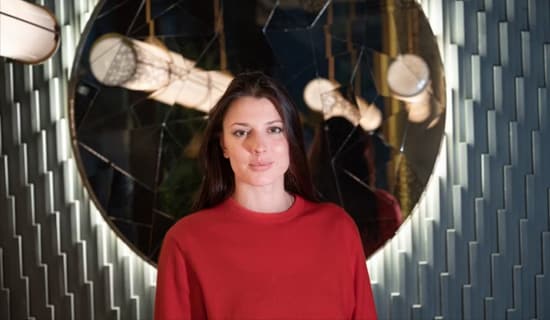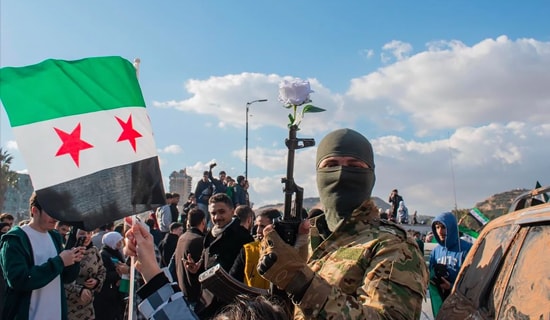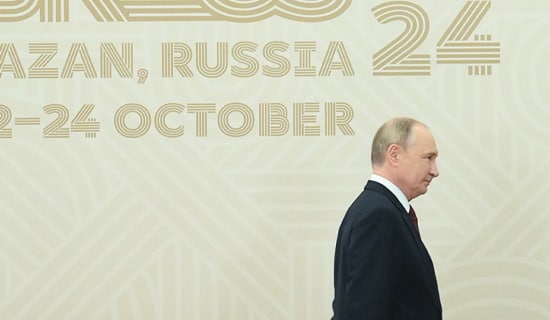In a Rosbalt interview titled "Turkey Openly Backs the Islamic Ummah of Europe", Aleksey Kuchin interviewed Professor Alexander Tevdoy-Burmuli, an expert on ethnopolitical processes. Tevdoy-Burmuli saw Turkish influence behind the recent acts of terror in France and claimed that a dangerous synergy is created "when the accumulated [Islamic] terrorist potential and the corresponding practice... receives institutional support from the Turkish authorities." Tevdoy-Burmuli believes that Russian Muslims are being drawn into this trend as could be seen at the anti-Macron demonstration in Moscow, where the demonstrators shouted "Allah Akhbar". Tevdoy-Burmuli mildly criticized Russia's law enforcement authorities for treating the Muslim demonstrators more leniently than at other unauthorized demonstrations.
The interview with Tevdoy-Bumuli follows below:[1]

Russian Muslims demonstrate against Macron at French embassy in Moscow (Source: Ria.ru)
"In the single day of October 29, three terrorist attacks by radical Islamists occurred against French citizens, including another beheading - this time that of an innocent woman in a Catholic cathedral in Nice. Additionally, attacks took place on police officers in Avignon and on a guard of the French mission in the city of Jeddah, Saudi Arabia.
"These events forced Paris to declare the highest level of terrorist threat throughout the country. By order of French President Emmanuel Macron, the army was brought into French cities. Let’s note that the aforementioned attacks took place less than two weeks after the brutal murder of a college teacher, Samuel Pati, in the Paris suburb of Conflans-Saint-Honorine.
"Now, many claim that these tragic events coincided in time with a sharp deterioration in Franco-Turkish relations. The publication of a caricature of Erdogan in the notorious Charlie Hebdo added fuel to the fire. After Macron’s statement on firmly defending the principles of freedom of speech and conscience, Turkish President Recep Erdogan spoke about his French counterpart in an insulting manner. Things got to the point that France recalled its ambassador from Ankara, and the Turkish president called for a boycott of French goods in Muslim countries.
"The media note that Ankara may also be behind the anti-French campaign on social networks, led by 'trolls'. In addition, demonstrations have taken place in a number of Muslim countries in support of radical Islamists. In Moscow, on the day of the triple murder in France, a protest was also held against the new publications of Charlie Hebdo cartoons and the policies of President Emmanuel Macron.
"Alexander Tevdoy-Burmuli, associate professor of the Department of Integration Processes at MGIMO, told Rosbalt about his take on these events.

Alexander Tevdoy-Burmuli (Source: Newstube.ru)
— Do you think the terrorist attacks in France can somehow be connected with the conflict between Erdogan and Macron?
— I would say that the murder of a French college teacher is in line with an earlier and common trend that began many years ago. It is connected with the fact that the French ummah (Muslim community) strongly protests against what it perceives to be an insult on religion. They view any such gesture by the host European states, as a prescription for terror.
As for the Islamization of Turkey, this is a separate trend associated with the internal political and partly foreign ambitions of Erdogan. The recent re-purposing of the Hagia Sophia cathedral in Istanbul from a museum to a mosque and the closure of the frescoes in the Chora (Kariye) church fit into this trend.
In the last two terrorist attacks, we see a certain link between these two trends. Because Erdogan, who claimed the functions of a leader of the Islamizing world, by criticizing Macron, inevitably does so also in foreign policy. And here a definite synergy is triggered, when the accumulated terrorist potential and the corresponding practice (partly provoked by European multiculturalism, which allowed Muslims to transfer their socio-cultural norms to European soil) receives institutional support from the Turkish authorities.
— To what extent were the last two incidents in France provoked by such support from Erdogan?
— It is difficult to say to what extent they were provoked by this. But one must understand that a significant part of the European Islamic diaspora, even those of its representatives who are citizens of certain European countries, adhere to another identification code: either to the country of origin (like the Turks in Germany and Belgium) or to Islam, as their main identity. And now this long-simmering conflict bubble has burst.
— Meaning, in your opinion, those who say that Ankara is behind the European Muslim fundamentalists are right?
— Turkey now openly supports the Islamic ummah of Europe. Turkey has ceased to be secular. And since it along with Iran and Saudi Arabia, took on the role of at least one of the vanguards of the Islamic world, then part of the emigrant diaspora in Europe, which feels their connection with Ankara or simply respects Erdogan for being an Islamist, will certainly operate more actively.
Please note that some loyalist forces in Russia, including the head of Chechnya - Ramzan Kadyrov, are drawn to the same bloc. On the day of the terrorist attack in France on October 29, the crowd on Yakimanka outside the French embassy in Moscow chanted “Allah Akbar!” The police did nothing. Naturally, such things are already perceived by a part of the Russian ummah as some kind of guide to action. That is, this trend is spreading in Russia as well.
— In this regard, let’s note the threats to the Russian TV presenter and the politician Ksenia Sobchak, who expressed solidarity with the French president in upholding freedom of speech.
— Yes, that’s right. In Russia, this is also superimposed on domestic political peculiarities, on the specific features of our state, when our law enforcement officers do not even protect the law at all, and when some structures or actors are allowed more than others.
But if we go back to France, we can assume that this terrorist trend will continue. It is unlikely that the issue will be limited to what has already happened, since now it is beneficial for Erdogan. He makes his domestic political capita on opposition to secular and Christian Europe. It feels like the outbursts of terrorism are likely to continue and this will cause changes in France's domestic policy.
— Nevertheless, it seemed to me that Erdogan cannot be called an Islamist in the purest sense. Even [under his presidency], Turkey is at least partly a secular country ...
— Sure. Islamism is only part of Erdogan’s image. But this is the trend we see now. The Turkish leader is a religious person and this is part of his political baggage. Erdogan is not only a practicing Muslim, but he also makes statements that make him a political Muslim.
[1] Rosbalt.ru, October 30, 2020.





